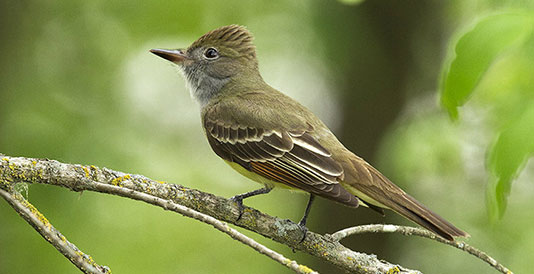 May 15, 2017 (Source: UF) - Climate change is altering the delicate seasonal clock that North American migratory songbirds rely on to successfully mate and raise healthy offspring, setting in motion a domino effect that could threaten the survival of many familiar backyard bird species, new research shows. A growing shift in the onset of spring has left nine of 48 species of songbirds studied unable to reach their northern breeding grounds at the calendar marks critical for producing the next generation of fledglings, according to a paper published today in Scientific Reports.
May 15, 2017 (Source: UF) - Climate change is altering the delicate seasonal clock that North American migratory songbirds rely on to successfully mate and raise healthy offspring, setting in motion a domino effect that could threaten the survival of many familiar backyard bird species, new research shows. A growing shift in the onset of spring has left nine of 48 species of songbirds studied unable to reach their northern breeding grounds at the calendar marks critical for producing the next generation of fledglings, according to a paper published today in Scientific Reports.
“It’s like ‘Silent Spring,’ but with a more elusive culprit,” said Stephen Mayor, a postdoctoral researcher with the Florida Museum of Natural History at the University of Florida and first author of the study. “We’re seeing spring-like conditions well before birds arrive. The growing mismatch means fewer birds are likely to survive, reproduce and return the following year. These are birds people are used to seeing and hearing in their backyards. They’re part of the American landscape, part of our psyche. To imagine a future where they’re much less common would be a real loss.”











